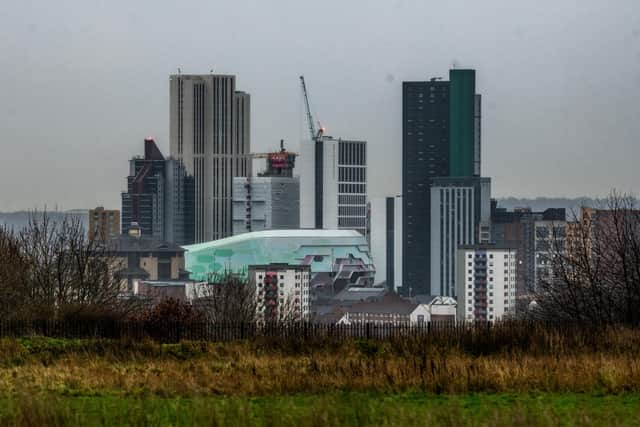Leeds housing: Only 11% of properties reach top energy performance rating in past year, report finds
Data compiled by JLL for its Envision Sustainability report found that only 23 per cent of EPCs registered in the Leeds office market were compliant with A or B standards, with just 12 per cent of general industrial spaces falling into the top bracket.
EPCs are required when a property is built, sold or rented, and aim to measure how energy efficient a property is.
Advertisement
Hide AdAdvertisement
Hide AdTom McWilliams, Head of Yorkshire at JLL, said: “Over recent years, Leeds has moved from strength to strength, cementing its reputation as one of the fastest growing and most exciting regional cities. However, this progress will be short lived if it is not delivered sustainably.


“It is important that we act fast, and with the same vigour that has characterised the city’s upward trajectory in the past decade.”
Leeds City council is currently in the final round of consultation on its Leeds Local Plan Update, which will set “sustainable construction standards” for residential developers in the city. The plan is expected to be submitted to the Government for examination in early 2024.
A spokesperson for Leeds City Council said: “Leeds has been working for a number of years to ensure that all new developments align with our ambition to make Leeds carbon neutral by 2030.
Advertisement
Hide AdAdvertisement
Hide Ad“The Leeds Local Plan Update is approaching its final round of consultation and will include policies that will require new developments to be built to high standards of energy efficiency, through the use of ambitious Energy Use Intensity (EUI) targets.
“Our housing strategy for 2022-27 also includes commitments to support the Building of ‘greener’ new housing developments with stricter energy efficiency standards, reducing fuel poverty through improved heating and insulation and supporting wider climate and flood resilience through green infrastructure.”
In recent months, the Government has indicated that it will move away from its proposals on EPC targets, which would currently require all new tenancies to have an EPC rating of C or above by 2025.
Many developers and landlords have argued that the EPC system does not accurately represent the environmental impact of a household.
Advertisement
Hide AdAdvertisement
Hide AdJonathan Wilson is managing director of sustainable developer Citu, the firm behind Leeds’s Climate Innovation District.
He said: “The methodology behind EPCs does not support sustainable choices. For example, it favours heating homes with gas, over electricity, which is a fundamental failure in the out-of-date assessment method.
“Although we aim to take an industry-leading approach and achieve an EPC A or B as standard, the stark reality is that the significant surge in interest surrounding EPC ratings for new homes doesn’t truly reflect the whole story.
“Citu could replace all the minimal electric heating in our homes with gas and improve our EPC rating from a B+ to an A in all cases.
Advertisement
Hide AdAdvertisement
Hide Ad“This is evidence of the systemic issue surrounding making real improvements, and creates an opportunity for greenwashing and carbon-washing, while hiding from the true reality that enables poor house performance in the housing industry.”